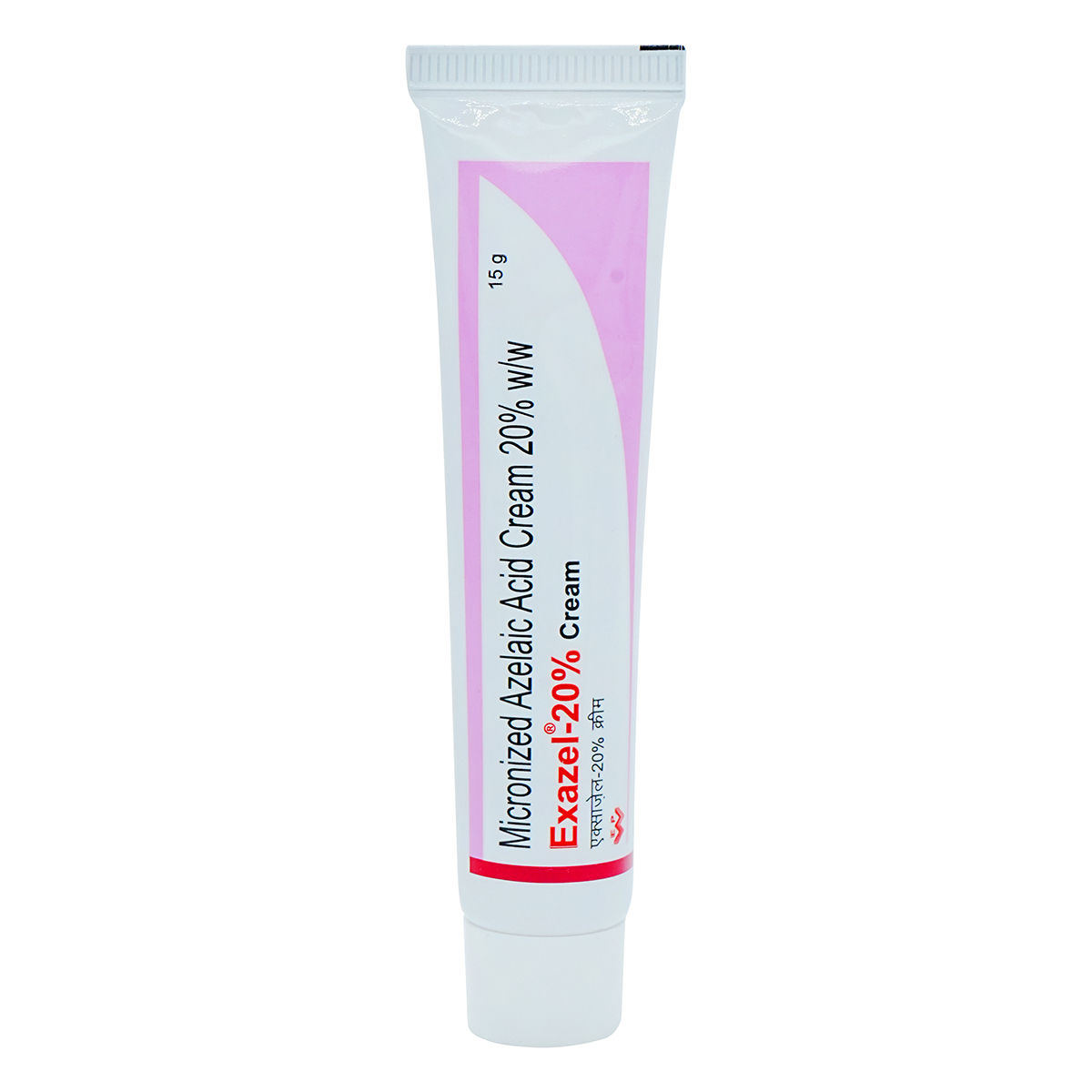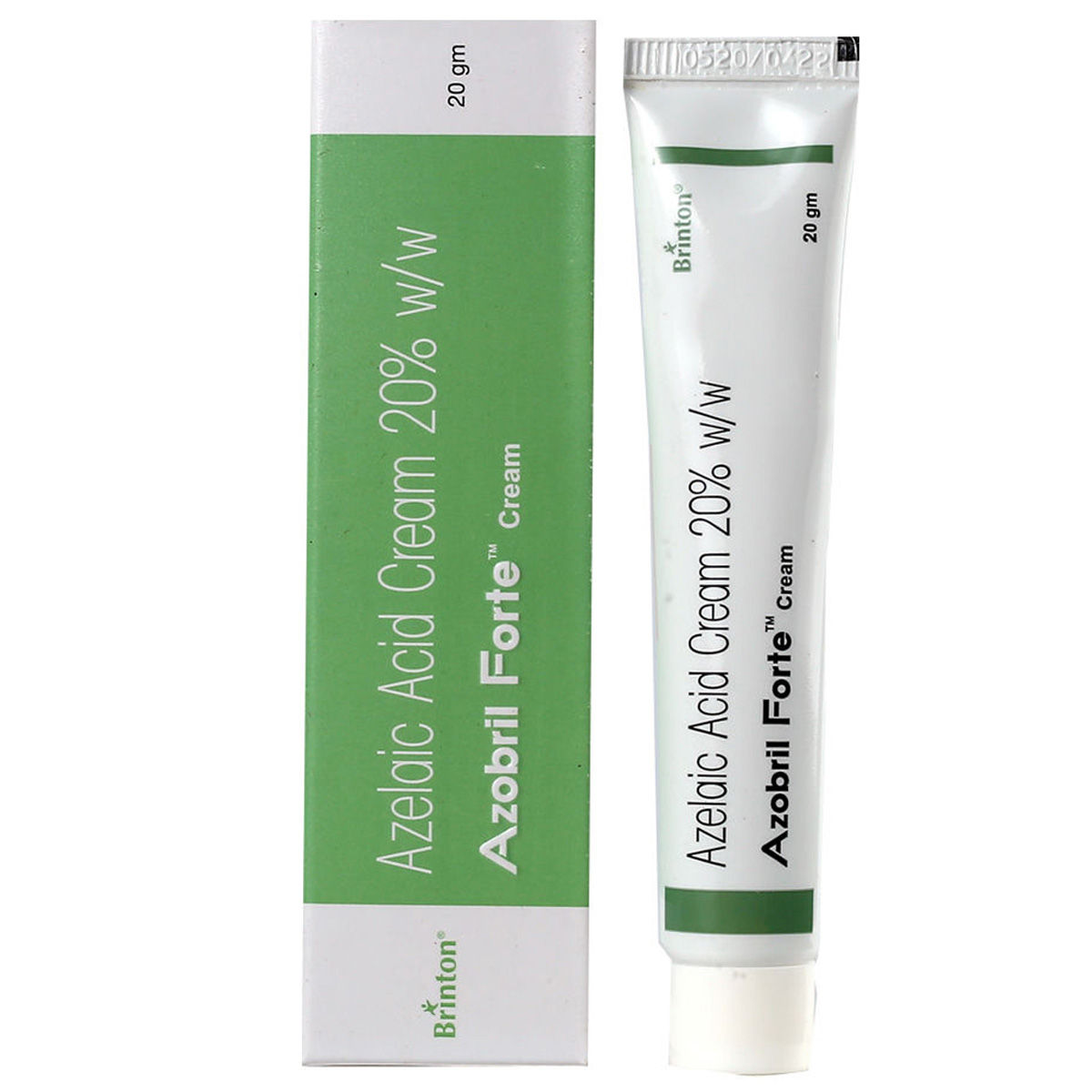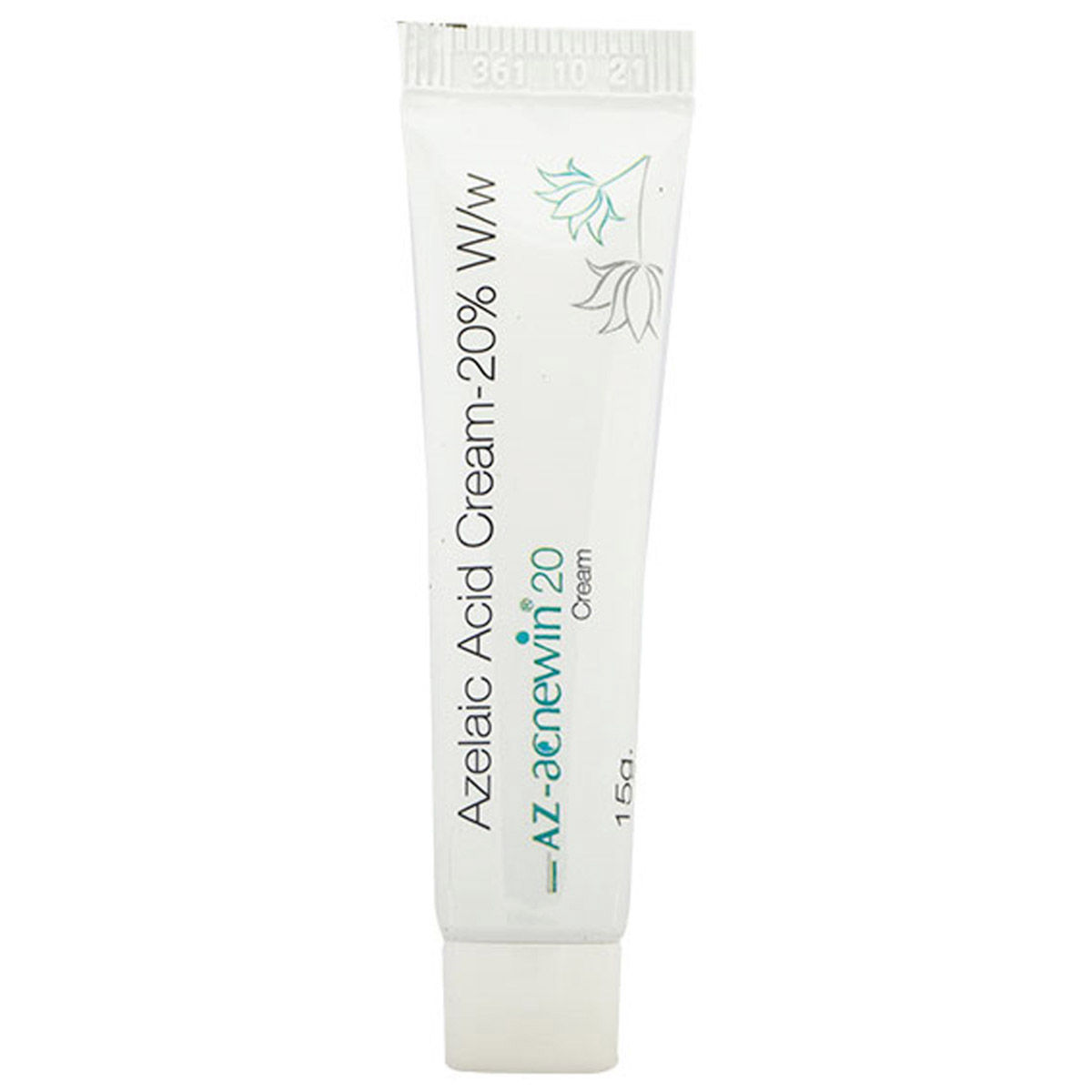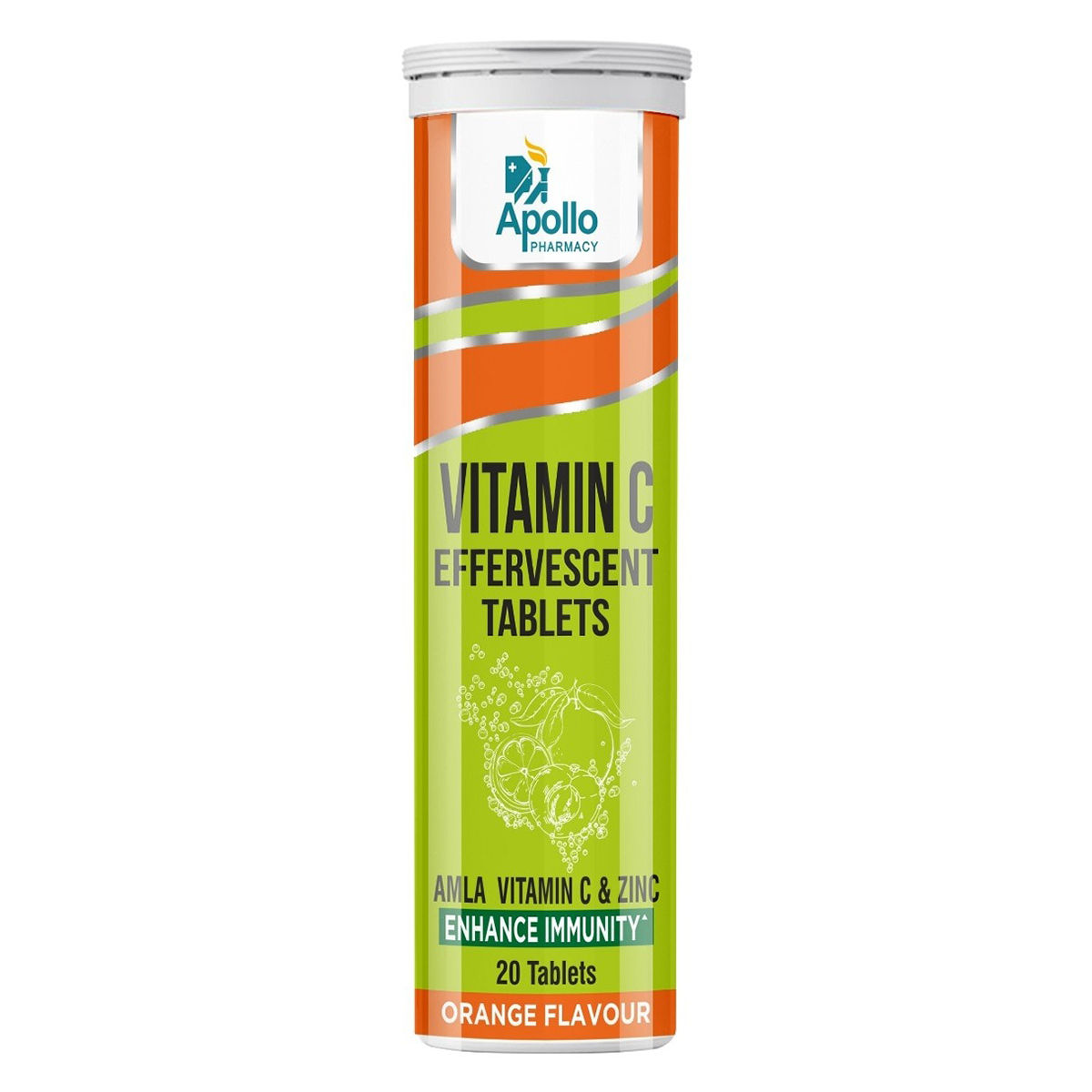Ezanic 20% Gel 15 gm
₹256.5*
MRP ₹285
10% off
₹242.25*
MRP ₹285
15% CB
₹42.75 cashback(15%)
Free Delivery
With Circle membership
(Inclusive of all Taxes)
This offer price is valid on orders above ₹800. Apply coupon PHARMA10/PHARMA18 (excluding restricted items)
Know Your Delivery Time
Provide Delivery Location



Available Offers
 Prescription drug
Prescription drugWhats That

Secure Payment

India's Most Trusted Pharmacy

Genuine Products
Composition :
Manufacturer/Marketer :
Consume Type :
Return Policy :
Expires on or after :
About Ezanic 20% Gel
Ezanic 20% Gel is used to treat acne (pimples) and rosacea (redness and visible blood vessels on the face). Ezanic 20% Gel has antibacterial, keratolytic (removes warts, calluses and other lesions), comedolytic (inhibits the formation of blemishes), and anti-oxidant activity. It is used to clear bumps, lesions, and swelling caused by rosacea. Acne is a skin condition caused when the hair follicles are plugged with oil and dead skin cells. It can cause whiteheads, blackheads and pimples. Rosacea is a skin disease that causes redness, flushing, and pimples on the face.
Ezanic 20% Gel contains 'Azelaic acid,' which is a bactericidal (kills bacteria) agent. It works by inhibiting the synthesis of microbial cellular proteins. Ezanic 20% Gel clears the pores of bacteria that cause irritation and breakouts. It reduces inflammation, making acne less visible, less red, and less irritated. Ezanic 20% Gel also helps the skin renew itself and reduces pimples and blackhead formation.
Ezanic 20% Gel is for external use only. Avoid contact with eyes, eyelids, lips, mouth and nose. If the medicine comes in contact with any of these areas, rinse with water immediately. Common side effects of Ezanic 20% Gel include dryness, peeling, burning, irritation, itching, and redness at the application site. These side effects may not occur in every patient using this medication and differ individually. If the side effects persist longer or worsen, please seek a doctor’s advice.
Please tell your doctor if you are allergic to Ezanic 20% Gel or its components that may cause skin irritation. Ezanic 20% Gel can make the skin change colour, especially when the skin is dark in colour. Please limit the use of products that contain large amounts of alcohol (astringents, shaving creams or after-shave lotions), hair removal products, and products containing lime or spices while using Ezanic 20% Gel. Keep Ezanic 20% Gel away from flames and extreme heat. It is essential to let your doctor know if you are pregnant, planning to conceive or a breastfeeding mother.
Uses of Ezanic 20% Gel
Directions for Use
Medicinal Benefits
Ezanic 20% Gel treats acne (pimples) and rosacea (redness and visible blood vessels on the face). It contains 'Azelaic acid', a dicarboxylic acid with antibacterial, keratolytic (removes warts, calluses and other lesions), comedolytic (inhibiting the formation of blemishes), and antioxidant activity. Ezanic 20% Gel is bactericidal and inhibits the synthesis of microbial cellular proteins. It clears the pores of bacteria that cause irritation and breakouts. It also reduces inflammation, making acne less visible, less red, and less irritated. Ezanic 20% Gel also helps the skin renew itself and reduces pimple and blackhead formation.
How Ezanic 20% Gel Works
Storage
Side Effects of Ezanic 20% Gel
Dryness
Peeling
Burning
Irritation
Itching
Redness at the application site
What if I have taken an overdose of Ezanic 20% Gel
Drug Warnings
Do not use Ezanic 20% Gel if you are allergic to Ezanic 20% Gel or any of its components. Please inform your doctor if you are using any prescription and non-prescription medications you are taking, including vitamins, before starting Ezanic 20% Gel. Ezanic 20% Gel can make the skin change colour especially when the skin is dark in colour. It is recommended to avoid tanning booths and sunlamps. Do not apply Ezanic 20% Gel on the irritated and sunburned skin. Please limit the use of products that contain large amounts of alcohol (astringents, shaving creams or after-shave lotions), hair removal products, and products containing lime or spices while using Ezanic 20% Gel. Pregnant and breastfeeding women should consult their doctor before using Ezanic 20% Gel.
Drug-Drug Interactions
Drug-Drug Interactions
Login/Sign Up
Drug-Food Interactions
Drug-Food Interactions
Login/Sign Up
Diet & Lifestyle Advise
- Avoid harsh products on your skin.
- Do not share cosmetic products, face towels, and bathing bars.
- Manage stress, eat healthily, drink plenty of water, exercise regularly, and get plenty of sleep.
- Avoid or limit the intake of alcohol and caffeine.
- Rinse your face with water several times a day to avoid breakouts.
- Do not scratch or pick your skin to avoid infecting the affected area.
- Hydration is important in managing acne; hence drink 3-4 litres of water daily to eliminate toxins from the body.
- Include anti-inflammatory foods in your diet.
Habit Forming
Therapeutic Class
Ezanic 20% Gel Substitute

Aziderm 20% Cream 15 gm
₹20.34per tabletAziderm Cream 15 gm
₹19.32per tabletEzanic 20% Cream 15 gm
₹17.10per tabletExazel 20% Cream 15 gm
₹13.53per tabletAzobril Forte 20% Cream 20 gm
by AYUR
₹16.20per tablet
Product Substitutes
Alcohol
Safe if prescribed
No interaction was found/established.
Pregnancy
Caution
Please consult your doctor before using Ezanic 20% Gel if you are pregnant or planning to conceive.
Breast Feeding
Caution
There are limited studies on how Ezanic 20% Gel affects the breastfed infants. Please consult your doctor before using Ezanic 20% Gel if you are breastfeeding. If you need to apply the cream or lotion on your breasts, don't do this shortly before giving a feed.
Driving
Safe if prescribed
Ezanic 20% Gel usually does not interfere with your driving ability and is safe to use.
Liver
Caution
Let your doctor know if you have any history of liver diseases before using Ezanic 20% Gel.
Kidney
Caution
Let your doctor know if you have any history of kidney diseases before using Ezanic 20% Gel.
Children
Caution
Ezanic 20% Gel is not recommended for use in children as the safety and efficacy is not established.
FAQs
Country of origin
Manufacturer/Marketer address
Customers Also Bought
Disclaimer
Author Details
We provide you with authentic, trustworthy and relevant information




















